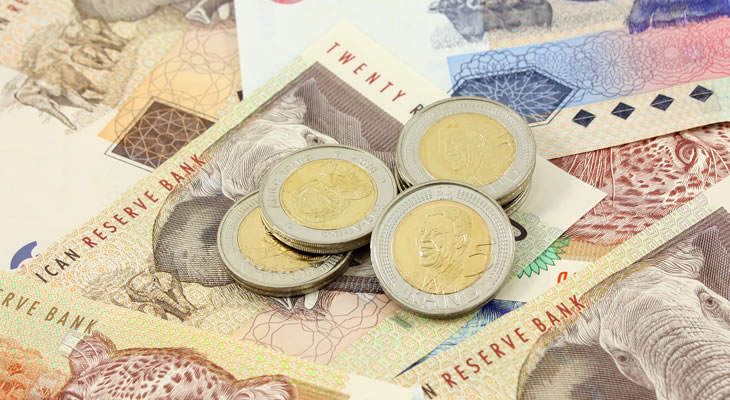- Pound South African Rand Exchange Rate Fluctuates with Both Currencies Weak – Soft Rand sees Pound’s losses muted.
- Pound’s Martin Weale-Related Rally Burns out – Comments regarding the Bank of England leaving rates on hold saw Sterling surge yesterday.
- IMF Upgrades SA Economy to Second Largest in Africa – South Africa overtakes Egypt as both economies show marked declines.
- Thursday’s SARB Rate Decision Holds Potential for Pound South African Rand Movement.
The Pound South African Rand exchange rate has seen minor fluctuations this morning as the Pound climbs down from its Martin Weale induced rally.
Previously, Bank of England (BoE) policymaker Martin Weale suggested that the central bank should not rush into any monetary loosening prematurely. These comments helped restart Pound gains after the currency was hamstrung by BoE chief economist Andy Haldane’s calls for ‘muscular’ monetary measures being enacted in order to pre-emptively stifle any emerging economic issues post-Brexit.
Currently the Pound South African Rand exchange rate trades at 18.8860 and has yet to really deviate from the day’s opening levels.
Sterling (GBP) Down from Recent Highs with IMF Warning on Global Growth Outlook
The Pound rallied for most of yesterday’s session on the back of Bank of England policymaker Martin Weale stating that the central bank can afford to hold rates for the time being.
Weale argued that, as UK households and business are not overly worried as of yet, any hasty monetary loosening would be somewhat premature as there has been very little in the way of ‘material signs of panic’.
Today, however, the Pound has seen a 0.50% decline across the board, in part in reaction to the massive spending implications of the Trident renewal that was passed through parliament yesterday. The fact that the government will be spending at least £31 billion on the maintenance of the UK’s nuclear deterrent could be viewed as a slightly worrisome piece of news given the uncertain post-Brexit economic landscape.
Later today, analysts anticipate the IMF will cut its growth forecasts for the UK and world economy as a whole due to the opening of the Pandora’s Box that was the Brexit vote. IMF head Christine Lagarde has been an outspoken critic of the Brexit from the beginning, giving warnings of a possible stock and housing market crash within Britain.
South African Rand (ZAR) Fluctuates ahead of SARB Rate Decision
The South African Rand found a sliver of investor favour yesterday as the IMF ranked the South African economy the second biggest in Africa behind Nigeria.
Given the recent economic woes experienced by South Africa, the fact the IMF still ranked the SA economy second bodes well for the country as it just edged out over Egypt, which slipped into third place. However, this isn’t entirely good news as once the figures are more closely examined, it appears that the South African economy just managed to shrink less than the Egyptian economy, rather than actually grow.
The South African Reserve Bank (SARB) is expected to announce its rate decision on Thursday after mulling over tomorrow’s inflation releases. While the central bank has previously been raising rates in reaction to surging inflation, the current global economic circumstances may lead the bank to take a different approach. Deputy Governor Daniel Mminele has this to say about bank policy at the Bundesbank Regional Office on the 7th of July:
‘The South African Reserve Bank operates within a flexible inflation-targeting framework, and this requires carefully-calibrated policy decisions. These decisions need to appropriately take account of the evolving international and domestic economic and financial markets environment.’
Pound South African Rand Exchange Rate Forecast Rests on UK Economic Sentiment
Tomorrow plays host to a fairly substantial group of medium-impact UK employment stats. While weekly earnings are forecast for a marginal increase, jobless claims are also expected to rise. Three-month employment change is also anticipated to increase to 71,000 from 55,000.
A large portion of the data is still from the pre-Brexit period so the Pound may dodge any stats-based deprecation unless the figures are unexpectedly dire. Next month’s releases are expected to be markedly worse.
The South African Reserve Bank is expected to announce its rate decision on Thursday. South Africa has been wrestling with increased inflation for at least the past year and tomorrow’s inflation rate and core inflation rate releases should prompt the Bank to make policy changes relating to the data prints.
For now, UK economic sentiment provides the biggest opportunity for Pound South African Rand Movement until Thursday’s SARB decision.


Comments are closed.